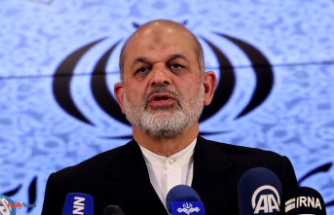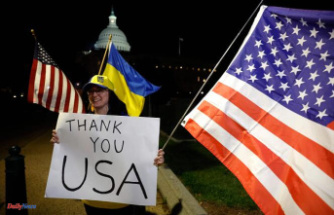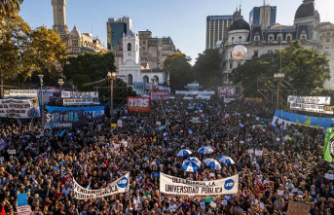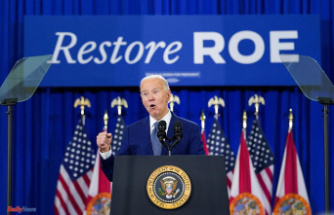About 25 tons of drug per month, around 200 detainees and at least the "resement" of an operation a week are the figures that guarantee the struggle of the Civil Guard against drug trafficking in southern Spain, with a plan , called Carteia, designed to put it more and more difficult to narcos.
Last month, three years of the start-up of the security plan for the Gibraltar field projected by the Ministry of the Interior to combat the impunity with which the narcos were acting in the area, with an increase in violence E, Even, from harassment to security forces.
Together with the Government's plan, the Civil Guard launched operation Carteia to fight against drug trafficking in a more global way, integrating the work they were doing of the different commandings and, little by little, to incorporate into the different Andalusian provinces in The plan of action (are already all less Jaén and Córdoba).
Thus, he created the regional center of analysis and intelligence against drug trafficking (CRAIN) to centralize and interpret all the information and the Southern Ocon, a coordination agency to enhance investigations in the field.
How did the narcos work before CARTEIA? As explained to Efe, the Crain's Head of Analyst Commander, organizations based their activity "in the efficiency and economy of media", with rapid actions and with the lowest possible cost.
For this, they placed both the launching points of the narcoembarcations, such as the loading and those of stash, at a distance as close as possible to save logistics costs, as well as having less exposure to the security forces.
However, the start-up of CARTEIA was hitting the organizations, with the dismantling of narcoembarkers throughout the Andalusian coast and the dismantling of some of the most powerful organizations.
"The organizations thought that this would last little and that the shower would pass in a few months. They were lowering the profile with the conviction that the police pressure would go and they would run again as before," the commander stands out.
It was not like that, and the Civil Guard continued to intensify its work with a new "ally": the Royal Decree that prohibits private use without prior authorization from pneumatic and high-speed semi-rigid boats, so-called "narcolchas", which allows its Decompense although they do not carry drug or tobacco when they are detected.
Faced with this pressure, the narcos begin to change their way of operating and seek spotlights and cargo points further to avoid police control, which represents more nautical miles sailing and, therefore, they need greater logistics capacity.
In this way, according to the commander, another problem that follows today arises: the appearance of criminal organizations dedicated to supply of fuel to the narcos, whose vessels have to remain more time in the water and need to avitualulation, both for the crews as for ships.
The commander regrets that the activity of these new criminal groups barely has criminal reproach, although the prosecution is studying how to solve this vacuum.
The relocation of its actions obliges them to form alliances with other organizations: "They begin to act as companies that subcontract services", that is, they pay to introduce overlooks in other areas and keep them in drug nurseries away from their radius of action until they can Remove it for distribution, mainly in Europe.
Nurseries that came to the chafarinas, a maritime "sanctuary" in which the narcos came to assemble a platform to which more than one dozen vessel arrived.
The Civil Guard dismantled it in the summer of 2019 "And since then they have not settled there again," says the commander about an operation with which the agents wanted to send a message the narcos: "that there were no limits to fight them or place To take refuge from us. "
The pandemic also confined the narcos and practically paralyzed its activity, especially because the restrictions on mobility in Spain coincided with the closure of Morocco. The vessels barely moved and the drug stock remained stored in the country alauita.
A few months in which the drug traffickers accumulated losses that, with the recipient's uprising, wanted to recover in a short time, which led them to commit "errors" that came out expensive. An example of this was the fall of the clan leader of the chestnuts, Antonio Badger and, the dismantling of its logistics structure.
That operation served, points out the commander to contain and decrease the activity levels of organizations in the area. But these, continue to explore new routes, farther away from the Gibraltar field, although the "premises" remain operational.
They are the most powerful those who are holding the "attacks" of the security forces better and those who are increasingly investing in security.
Thus, the commander emphasizes how in frank floors, some organization had mounted maritime radars to control the vessels of the civil guard, how they are using drones to monitor the closet areas or how they use encryption systems to communicate.
And not only adopt these security measures to prevent from agents, but also from other rival organizations and drug "rollover".
The Civil Guard is clear that fighting the money launder, of the profits of the narcos, is a way to end them. "You have to take away all the money that you have been able to generate drug trafficking to prevent them from remaking relatively soon," adds Crain's head of analysis.
The purchase of high-end vehicles, the acquisition of supermarkets, construction on non-urbanized land ... are some of the traditional bleaching forms of southern narcos, which are already sophisticating and starting with playing companies with that Same objective
And to end this illicit activity, international collaboration is also fundamental, by which the Civil Guard has been betting for a long time. In fact, they are already numerous joint operations carried out with other countries, since the drug ends in Europe.
Considers the commander that the fight against drug trafficking in the south must also be addressed from the educational and social point of view, but from the police perspective he recalls that the operations have been intensified, which are being done many more research than before and has been created Some more court.
It would be good, the researchers believe, to continue reinforcing the judicial structure.
Many judgments have not yet been pointed out, but when the sentences are dictated - many narcos that have been arrested and that are now in freedom will be condemned and some will accumulate penalties - it will be possible if all this operation has left many criminals out of circulation .
Date Of Update: 04 September 2021, 08:51











